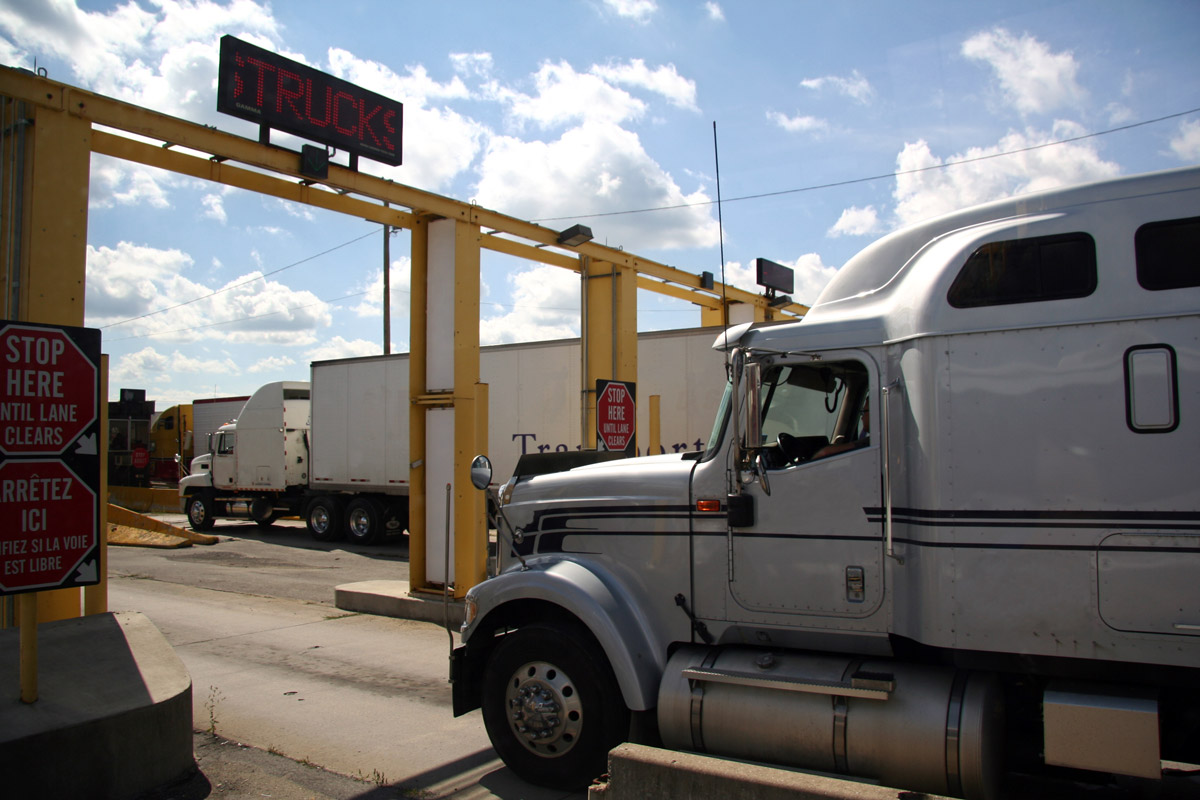
Vancouver's coastal location and proximity to the United States border make it an ideal spot for importing and exporting goods across the world.
Importing and exporting are crucial for businesses and provide access to a broader market, diverse resources, and additional materials. By engaging in international trade, businesses can reduce costs, increase their competitive edge, and tap into new consumer bases.
This global exchange fosters innovation, and cultural exchange, and drives economic growth, making it an essential component of a business's expansion strategy and overall success.
However, as beneficial as importing and exporting can be, navigating the complexities that come with it, such as customs and warehousing, can be extremely difficult.
Transporting Goods Across the US-Canada Border
Trading with our neighbors involves more than a handshake across the fence, and businesses moving goods across the border into Canada, or the United States must understand the rigorous customs requirements and ensure compliance.
First and foremost, transporting goods across the US-Canada border requires the correct classification of goods and the preparation of detailed documentation, including commercial invoices, Bills of Lading, and certificates of origin.
Next, businesses must ensure compliance with both countries' customs requirements, often involving pre-arrival notifications through specific programs like ACE (Automated Commercial Environment) in the US and ACI (Advance Commercial Information) in Canada.
Understanding tariff classifications, duties, and taxes is critical for both these steps, and partnering with a reliable customs broker or logistics service can ensure smooth transit, thorough compliance checks, and resolution of any potential issues at the border.
As you can see, importing and exporting goods across the border is not easy, and engaging with experienced logistics providers specializing in cross-border transitions can be invaluable.
Managing International Customs Complexities
Businesses importing or exporting goods to and from Canada from across the world must understand country-specific regulations, including customs tariffs, trade agreements, and import/export permits.
Transporting goods globally begins with preparing comprehensive documentation, including bills of lading, export declarations, and customs paperwork.
Coordination with freight forwarders, customs brokers, and the Canada Border Services Agency is paramount to facilitate smooth clearance and transit. On approval, goods are loaded, secured for international shipping, and monitored until they reach their destination.
To set yourself up for a successful global export or import, affix critical packaging details, ensure product labeling meets foreign market requirements, and understand the potential timeline for transportation.
The Role of Bonded Warehousing for Importing and Exporting
So far, we have mostly discussed the customs and documentation needed for importing and exporting products. But the more pertinent question is, how are the goods stored?
Bonded warehouses offer invaluable financial and logistical advantages for businesses dealing with imported and exported goods. A bonded warehouse lets you store goods inside a country while deferring the duty payments until the goods are ready for market entry. This grace period can significantly enhance cash flow and reduce upfront costs.
For imports, companies can store merchandise duty-free while awaiting sale, distribution, or further manufacturing. Conversely, for exporters, bonded warehouses serve as the last secure stop before goods reach international markets, allowing for staging and consolidation without triggering taxes or duties.
This strategic warehousing solution improves operational flexibility and efficiency, providing businesses with a competitive edge in the global marketplace.
Easily Import and Export Products Anywhere in the World
With e-commerce and multiple shipping methods, the world is your marketplace. The only challenge is understanding global trade routes and specific country documentation.
Many businesses do not have these resources, but at 18 Wheels Logistics, our expertise is unmatched.
Our team stays ahead of changing international trade agreements and taxes so that your cargo complies with all necessary protocols, customs tariffs, and duties, no matter the destination.
By entrusting us with your products, you gain bonded storage space and professional logistics experience that can optimize cash flow. From creating precise documentation to securing clearances, we shoulder the responsibility so that you can focus on expanding your business horizons.
The process begins with our consultative approach that focuses on understanding your business model and logistics needs to tailor a service that accelerates your delivery process.
Once scoped out, we leverage technology to keep track of your inventory in real-time while maintaining stringent security protocols throughout our operations.
Simplifying Logistics in Vancouver and Across the Globe
In the heart of Vancouver, 18 Wheels Logistics offers state-of-the-art bonded warehouse solutions and customs management that can expedite imports and exports across the world.
The 18 Wheels Logistics team acts as an extension of yours, working tirelessly behind the scenes so that the transition from import/export documentation to warehousing and final delivery mirrors clockwork perfection.
Ready to get started? Contact us or fill out a quote form, and we can answer any questions you have regarding importing and exporting in Vancouver.
For over 30 years, 18 Wheels Logistics has strived to be the most customer-centric trucking, warehousing, and logistics company around.
Based in Vancouver, British Columbia, Canada, 18 Wheels relies on experience and integrity to make customers happy and remain on the cutting edge of shipping and logistics management.
If you have any questions about this article or you would like to talk to us about your shipping needs, please call us at (604) 439-8938.
